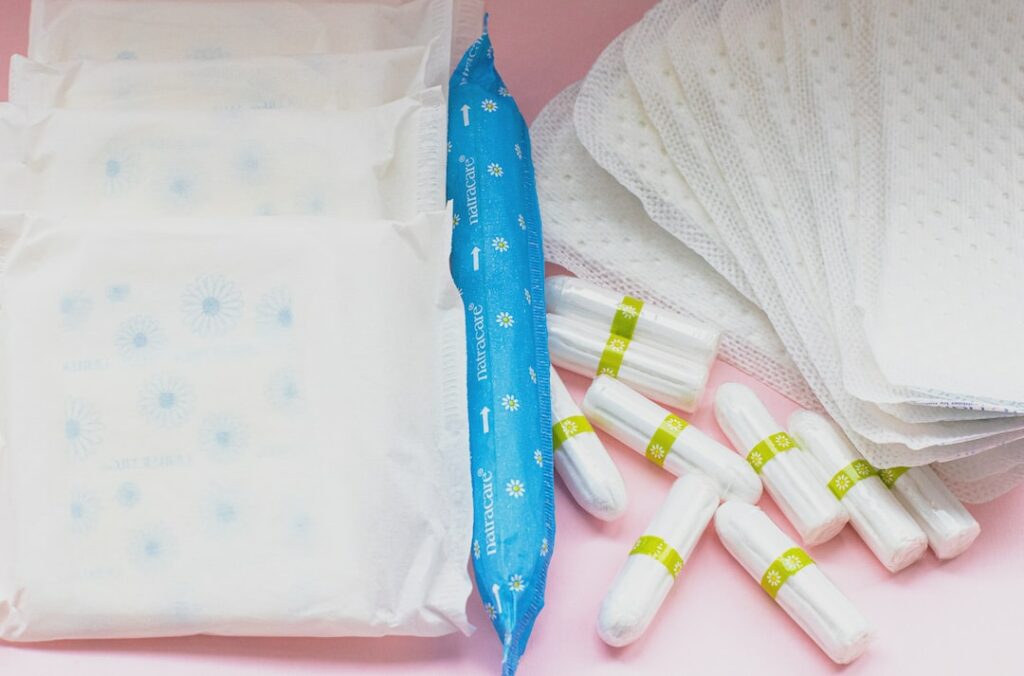


Are you curious if it’s safe to sleep in a tampon? You’re not alone. Many women have this question and want to know the risks and guidelines.
This article provides valuable information about the safety of sleeping with a tampon, the potential risks of leaving it in too long, and guidelines for overnight use.
Sleeping with a tampon poses potential risks to your health and well-being. One of the main risks is the increased risk of toxic shock syndrome (TSS), which is a rare but life-threatening condition caused by bacterial infection.
It’s important to change your tampon every four to eight hours to minimize the risk of TSS. Leaving a tampon in for too long, especially overnight, can further increase the risk of TSS. To protect yourself, it’s recommended to change your tampon before bed and use the appropriate absorbency level for your flow.
Additionally, consider using a backup method such as a pad or period underwear for added protection. Remember, your health and safety should always be a top priority.

Consider trying out different period products to find a safer alternative for sleeping without a tampon. There are several alternatives to tampons that can provide overnight protection. Pads are a common choice and offer a safer option for sleep. They provide reliable absorption and can be easily changed before bed and in the morning.
Another option is period pants, comfortable and leak-proof sleepwear designed specifically for menstruation. Menstrual cups are also a popular alternative. They’re reusable, eco-friendly, and can be worn overnight without the risk of toxic shock syndrome. Disposable menstrual discs are another option that provides longer-lasting protection. It’s important to experiment with different products to find the best alternative that suits your individual needs.
To enhance your sleep during your period, prioritize meeting your individual sleep needs and incorporate relaxation techniques to alleviate pain and discomfort.
Here are three tips to improve your sleep on your period:
1. Determine your individual sleep needs and make them a priority. Whether it’s getting enough hours of sleep or establishing a consistent sleep schedule, meeting your sleep needs is essential for a good night’s rest.
2. Practice relaxation techniques to ease pain and discomfort. This can include deep breathing exercises, gentle stretching, or using heat packs to soothe cramps. Relaxing before bed can help you unwind and prepare your body for sleep.
3. Maintain good sleep hygiene. This involves creating a sleep-friendly environment by keeping your bedroom dark, quiet, and at a comfortable temperature. Avoid electronic devices before bed, as the blue light can disrupt your sleep patterns.
Meeting your sleep needs is crucial for your overall health and well-being. Adequate sleep plays a vital role in your energy levels, mood, and overall physical and mental health. Here are three key reasons why meeting your sleep needs is essential:
1. Improved physical health: Getting enough sleep helps support a strong immune system, promotes proper hormone regulation, and aids in tissue repair and growth. It also reduces the risk of developing chronic conditions such as heart disease, diabetes, and obesity.
2. Enhanced cognitive function: Sufficient sleep improves memory, concentration, and decision-making abilities. It also boosts creativity and problem-solving skills, allowing you to perform at your best in various aspects of life.
3. Emotional well-being: Sleep deprivation can lead to increased stress levels, irritability, and mood swings. On the other hand, getting enough sleep helps regulate emotions, promotes feelings of happiness and contentment, and enhances overall emotional well-being.
To ensure you meet your sleep needs, prioritize getting enough sleep each night and establish a consistent sleep schedule.
In conclusion, it’s generally safe to sleep with a tampon as long as you follow the recommended guidelines.
However, there are potential risks associated with leaving a tampon in for too long, such as toxic shock syndrome.
It’s important to consider alternatives to tampons, such as pads or menstrual cups, and prioritize your sleep needs during your period.
By making informed decisions and taking proper precautions, you can ensure your comfort and safety while sleeping.
Alhola, P., & Polo-Kantola, P. (2007). Sleep deprivation: Impact on cognitive performance. Neuropsychiatric disease and treatment, 3(5), 553–567.
BetterHealth Channel (n.d.) Mood and sleep [online]. https://www.betterhealth.vic.gov.au/health/healthyliving/Mood-and-sleep
BetterHealth Channel (n.d.) Toxic shock syndrome (TSS) [online]. https://www.betterhealth.vic.gov.au/health/conditionsandtreatments/toxic-shock-syndrome-tss
Besedovsky, L., Lange, T., & Born, J. (2012). Sleep and immune function. Pflugers Archiv : European journal of physiology, 463(1), 121–137. https://doi.org/10.1007/s00424-011-1044-0